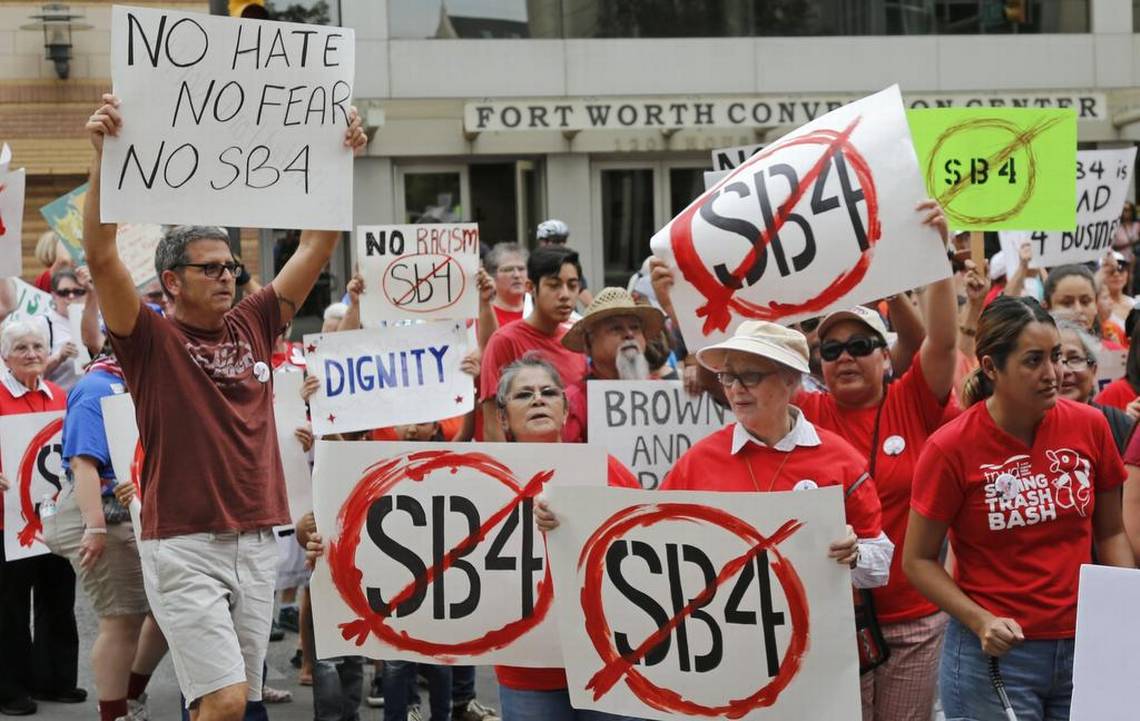Immigration activists in Texas are preparing to protest state laws geared toward outlawing sanctuary cities and cutting back protections for undocumented aliens.
Among the chief concerns of activist groups and immigrants alike is the possible termination of a program started under former President Barack Obama.
Commonly referred to by its acronym, the Deferred Action for Childhood Arrivals (DACA) initiative lets individuals who were brought to the United States illegally as minors apply for temporary residency and work permits. An estimated 800,000 people – mostly young adults – are living in America as DACA recipients.
Donald Trump has, contrary to his usual rhetoric on illegal immigration, shown a surprising reluctance to terminate DACA. Recent remarks show he’s liable to terminate the program, stoking fears in recipients, who are collectively known as ‘Dreamers.’
The Guardian spoke to several immigration activists about their views on a possible DACA termination, as well as their views on the controversial Texas legislation SB4.
“I come from a mixed-status family so there’s always been this [anxiety over] what happens when half of the family’s no longer there,” said Mona Ramirez, an activist with the Texas-based Latino advocacy group Jolt. “I’ve felt like my life has been played with since I arrived here.”
Ramirez was brought to the United States from Mexico when she was 6 years old and didn’t know she was undocumented until high school. Like many other members of Jolt, Ramirez is a DACA recipient.
“They give us a little crumb to calm us down for a little bit and then we just kind of like wait until the next time they want to use us for their political games.
“I am super-scared, I don’t know what’s going to happen, I am really angry, too. Angry that these politicians think our lives simply don’t matter because we are not from here,” she said.

SB4 was approved and signed into law by Governor Greg Abbott in May. It essentially forbids the establishment of so-called sanctuary cities in Texas.
Sanctuary cities are jurisdictions in which police departments do not inquire about the immigration status of persons they detain or encounter in the line of duty, unless they have specific reason to believe an individual committed an immigration offense.
Another component of SB4 would allow ordinary law enforcement officials to ask detainees about their immigration status during traffic stops and other official interactions. Critics of the measure fear that the law could act as a gateway to increased racial profiling and discrimination.
Proponents of sanctuary cities say such policies help reduce crime, since illegal immigrants won’t have to fear deportation if they’re asked to talk to the police or witness or fall victim to a criminal act.
When attacked by U.S. Attorney General Jeff Sessions over his city’s sanctuary city policy, Philadelphia Mayor Jim Kenney said his constituents were enjoying an all-time low in crime rates. Kenney said homicides had decreased after the city reimplemented a pro-immigrant approach in its politics and policing.
Several of the biggest cities in Texas seem to share Philadelphia’s philosophy.
Houston, Dallas, San Antonio, and Austin, along with other municipalities, have all joined a lawsuit challenging the constitutionality of SB4.
The lawsuit was heard by federal Judge Orlando Garcia in June.
Activists are hoping that Garcia will deem the law unconstitutional by the end of the week.
Sources
‘It’s scary:’ Hundreds protest Fort Worth’s failure to join SB4 lawsuit
Texas set for protests over SB4 law and Trump threat to Dreamer protection
With Speeches And Bright Dresses, Quinceañeras Protest Texas Sanctuary City Ban


Join the conversation!